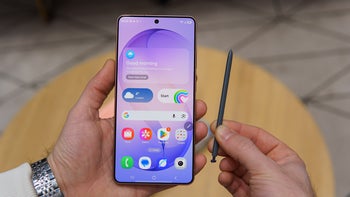Brazil also considers forcing Apple to introduce USB-C to the iPhone

Legislators throughout the world seem to be turning on the heat on Apple. As more and more countries are rallying behind the idea of mandating a single charging point, pressure is mounting on Apple to abandon its proprietary Lightning power connector.
Brazil is just the newest addition to a list of countries that are considering efforts to push USB-C as the mobile market standard, as reported by 9to5 Mac. The reasoning behind this decision is straightforward - allowing greater convenience for users and limiting the amount of e-waste.
These legislative attempts mirror the ones undertaken by the European Union. For reference, earlier this year, European Union lawmakers passed regulations mandating that almost all mobile devices will have to feature a USB-C port for charging.
Given that the EU is a major market for Apple the “Deal on Common Charger” as it is formally dubbed will force Apple to drop their proprietary Lightning connector in order to continue selling its devices.
Apple is known for fiercely guarding its ecosystem (naturally so, given the fact that it is a major source of profit). It, at least in part, rests on the Lightning connector standard. For years, the tech giant has tried to resist fully adopting the USB-C port, especially when it comes to the company’s mobile devices.
Most concerning for Apple is the fact that the US Senate is also considering the adoption of a policy similar in spirit to the EU Deal on Common Charger. The US is Apple’s most important market and such a legislative effort will spell the definitive end of the Lightning connector.
It should be noted that many tech pundits have speculated that Apple is already working on a USB-C iPhone. Both prominent analyst Ming-Chi Kuo and Bloomberg journalist Mark Gurman agree that the iPhone could make the switch to USB-C as soon as 2023.
You know what they say - better late than never. We will have to wait and see how many countries will make the Lightning connector illegal before Apple finally embraces USB-C.
Given that the EU is a major market for Apple the “Deal on Common Charger” as it is formally dubbed will force Apple to drop their proprietary Lightning connector in order to continue selling its devices.
Apple is known for fiercely guarding its ecosystem (naturally so, given the fact that it is a major source of profit). It, at least in part, rests on the Lightning connector standard. For years, the tech giant has tried to resist fully adopting the USB-C port, especially when it comes to the company’s mobile devices.
It should be noted that many tech pundits have speculated that Apple is already working on a USB-C iPhone. Both prominent analyst Ming-Chi Kuo and Bloomberg journalist Mark Gurman agree that the iPhone could make the switch to USB-C as soon as 2023.
You know what they say - better late than never. We will have to wait and see how many countries will make the Lightning connector illegal before Apple finally embraces USB-C.
Follow us on Google News













Things that are NOT allowed:
To help keep our community safe and free from spam, we apply temporary limits to newly created accounts: